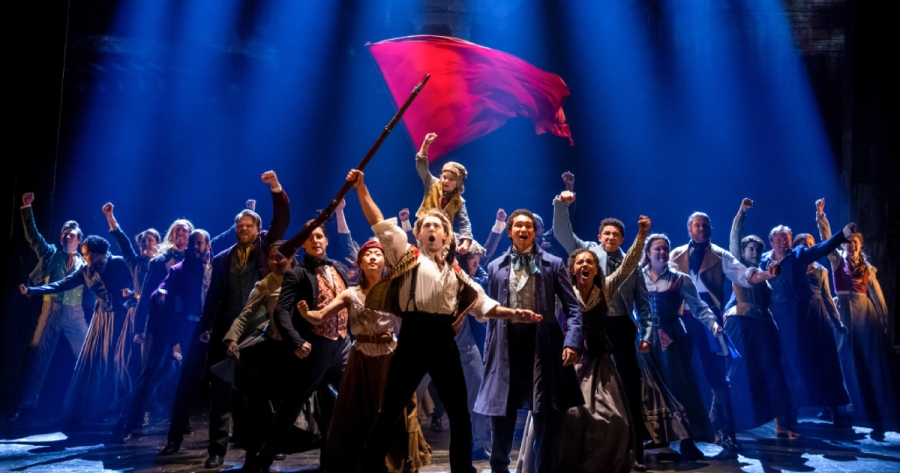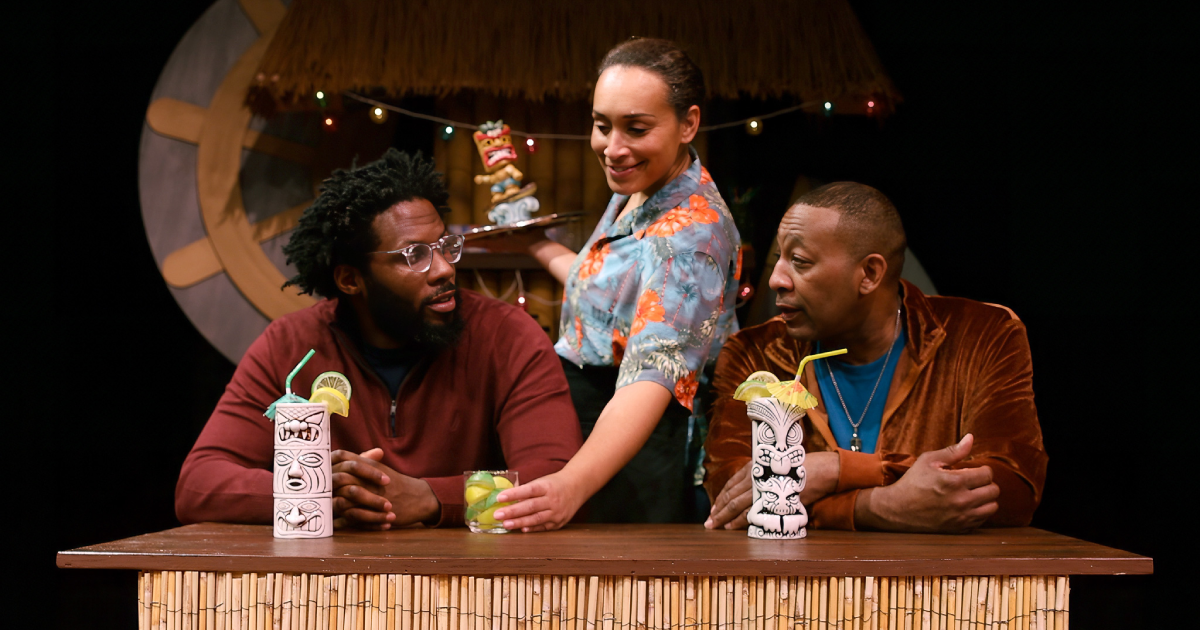One can’t help but wonder why an exceptionally dark, three-hour-long musical with about half a dozen central characters and a hero without a romance has endured for nearly 40 years with fans old and new alike clamoring for more.
In many ways Les Míserables is an unlikely popular success. The epic story, drawn from Victor Hugo’s extraordinarily long and complex 19th Century French novel, is set during a French Revolution—though not the one everyone thinks of—and spans two decades and dozens of locations over the course of its, at times, seemingly interminable two acts.
The central drama is a policeman’s hunt to recapture a convict, though that convict (who did nothing more sinister than steal a loaf of bread for a starving child) has become a most righteous man and pillar of his community. In fact, Jean ValJean’s heroism is its own reward; and the payoff for his selfless acts and a lifetime of suffering is a good, timely death—a welcome into heaven with open arms from all his beloved dead who made it there before him.
It is that ultimate redemption, the belief, faith, and hope of Christians everywhere sprung to life beautifully on stage, that makes Les Míserables so enduring.
That and Claude-Michel Schönberg’s stunning music with lyrics by Herbert Kretzmer and orchestrations by John Cameron (updated by Christopher Jahnke, Stephen Metcalfe, and Stephen Brooker) that largely provides the symbolic structure for the complicated story woven together with a multitude of narrative lines.
It is the score’s motifs, the variations of about four lovely melodies on repeat, that provide the logical line of this tale that is, at turns, dark, bawdy, romantic, highly dramatic, and full of impressively complex characters who are wonderfully likable if not lovable—especially the villains. Jean Valjean’s Act I soliloquy is echoed by Javert’s in Act II; “Lovely Ladies” is mirrored by “Turning”; and “Beggars at the Feast” returns the dark hilarity and joy of “Master of the House.”
In this production, antagonist Javert is played by Preston Truman Boyd, one of the strongest, clearest-voiced performers on stage (particularly evident in “Stars” and “Soliloquy”), which tips the balance of the story and makes him even more sympathetic. He is well matched both physically and vocally by Nick Cartell as a contemplative Jean Valjean who grows in character and voice, ages convincingly (with terrific help from Stefan Musch’s excellent wigs), and fully embodies the character’s moral dilemmas elegantly, particularly in “Who am I?” and “Bring Him Home”.
Haley Dortch’s Fantine provides wonderful gravitas, though at times the tempos were so bright opening night, it seemed as if she had to swallow words to complete the phrasing in songs such as “I Dreamed a Dream”. Jake David Smith is a sweet Marius and tugs at the heart strings with his “Empty Chairs at Empty Tables” while Victoria Huston-Elem and Matt Crowle provide bawdy comic relief as the nasty Thénardiers offering a memorable “Master of the House” and “Beggars at the Feast”.
These songs are everything one hopes for as performed by this cast, particularly in the grand, sweeping numbers such as “One Day More”. Individually and collectively they bring the necessary energy, athleticism, endurance, and range to this challenging music that feels somehow imbedded in the cells of your body once you’ve heard it performed live.
Les Mis relies largely on its music to create character and evoke story and emotion, and this phenomenal orchestra, directed by Will Curry, does so with gusto. To be moved by Les Misérables is so very much about experiencing its stunning orchestrations live.
Though visually, this show is also stunning, a marvelous feast for the eyes. Every one of Matt Kinley’s sets is a behemoth; from the barricade that provides the setting for war to the interior of a factory with floor-to-ceiling windows to multi-layered, textured city street scenes, the locations come alive beautifully and with great feeling lit exquisitely by Paule Constable. Kinley’s projected images based on Victor Hugo paintings (realized by Finn Ross and Fifty-Nine Productions) are also impressive, providing a riveting sense of action and adventure with vivid simulations of travel, twists, turns, change in location into tunnels, sewers and other places, offering a creative and quite beautiful solution to necessary quick transitions.
Now a well-worn classic, this Les Mís tour very much keeps its original, compelling spirit alive, still terrifically exciting, perhaps made more so by little updates and changes. Such complex artistry and beauty executed so well will no doubt continue to gather new fans for decades to come.
Les Misérables
Broadway Grand Rapids
March 5-10
broadwaygrandrapids.com





